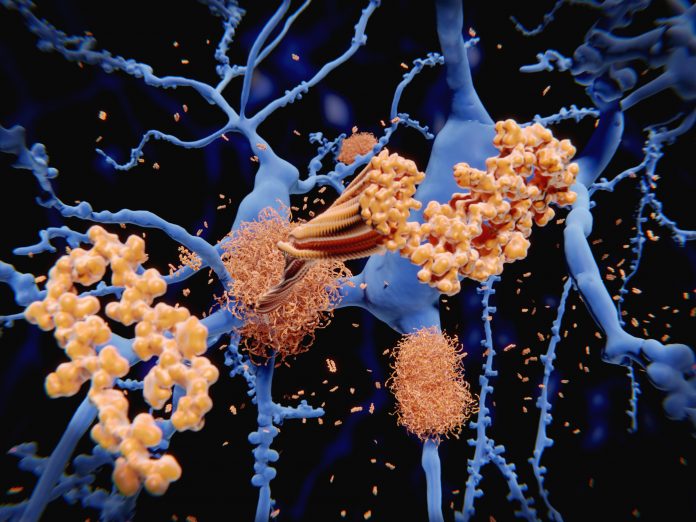
New research from The Air Force Medical University in China shows that reducing the methylation of a specific messenger RNA (mRNA) can improve Alzheimer’s disease (AD) symptoms in a mouse model by promoting the migration of macrophages into the brain. The results of the study, published Tuesday in PLOS Biology, suggest a new therapeutic development target for the treatment of AD.
A well-known culprit in the development of AD is the accumulation of amyloid-beta plaques in the brain. Mouse models with high-levels of amyloid-beta exhibit neurodegeneration and declining cognitive abilities that are similar to those of AD in humans. For this reason, a large focus for drug developers has been to find ways to reduce amyloid-beta levels.
A potential pathway to do this is via the migration of blood-derived myeloid cells into the brain which mature into macrophages. Macrophages and resident microglia can consume amyloid-beta. While this migration is a complex activity, the researchers zeroed in on the role played by the methylation of messenger RNA within myeloid cells as potentially important to this process.
For their work, the investigators tested whether deficiency of the enzyme METTL3, which carries out the most common mRNA methylation, called m6A, might affect the cognitive ability in Alzheimer’s mouse models.
“Recent studies have demonstrated that m6A is involved in the development of the nervous system and neural degenerative diseases. The widespread presence of m6A in the neuronal transcriptome also suggests its various functional roles in brain development and function,” the researchers wrote. “In addition, accumulating evidence has shown essential roles of m6A modification in learning and memory through regulation of the translation of plasticity-related genes in the mouse brain.”
The findings showed that treated mice did indeed perform better on cognitive tests, an effect that could be inhibited when they blocked the migration of myeloid cells into the brain, suggesting it is a target for Alzheimer’s treatment.
While the results showed that decreased mRNA methylation aided myeloid cell migration, the researchers sought to discover how this happens. By examining mRNA expression patterns, the team demonstrated that depletion of METTL3 reduced the activity of a key m6A reader protein, which recognizes m6A-modified mRNAs and promotes their translation into protein. This activity inhibits the production of another protein called ATAT1. The loss of ATAT1 led to a cascade of events that reduced the attachment of acetyl groups to microtubules, a reduction that promoted migration of the myeloid cells into the brain. This was then followed by maturation of the myeloid cells into macrophages, increased clearance of amyloid-beta, and improved cognition in mice.
“Our results suggest that m6A modifications are potential targets for the treatment of Alzheimer’s disease,” the authors wrote, but added that further research of this potential pathway in AD is warranted. Because mRNA methylation has a fundamental effect on a wide variety of downstream targets, effective drug development within this pathway may require moving further downstream to avoid unwanted effects.











